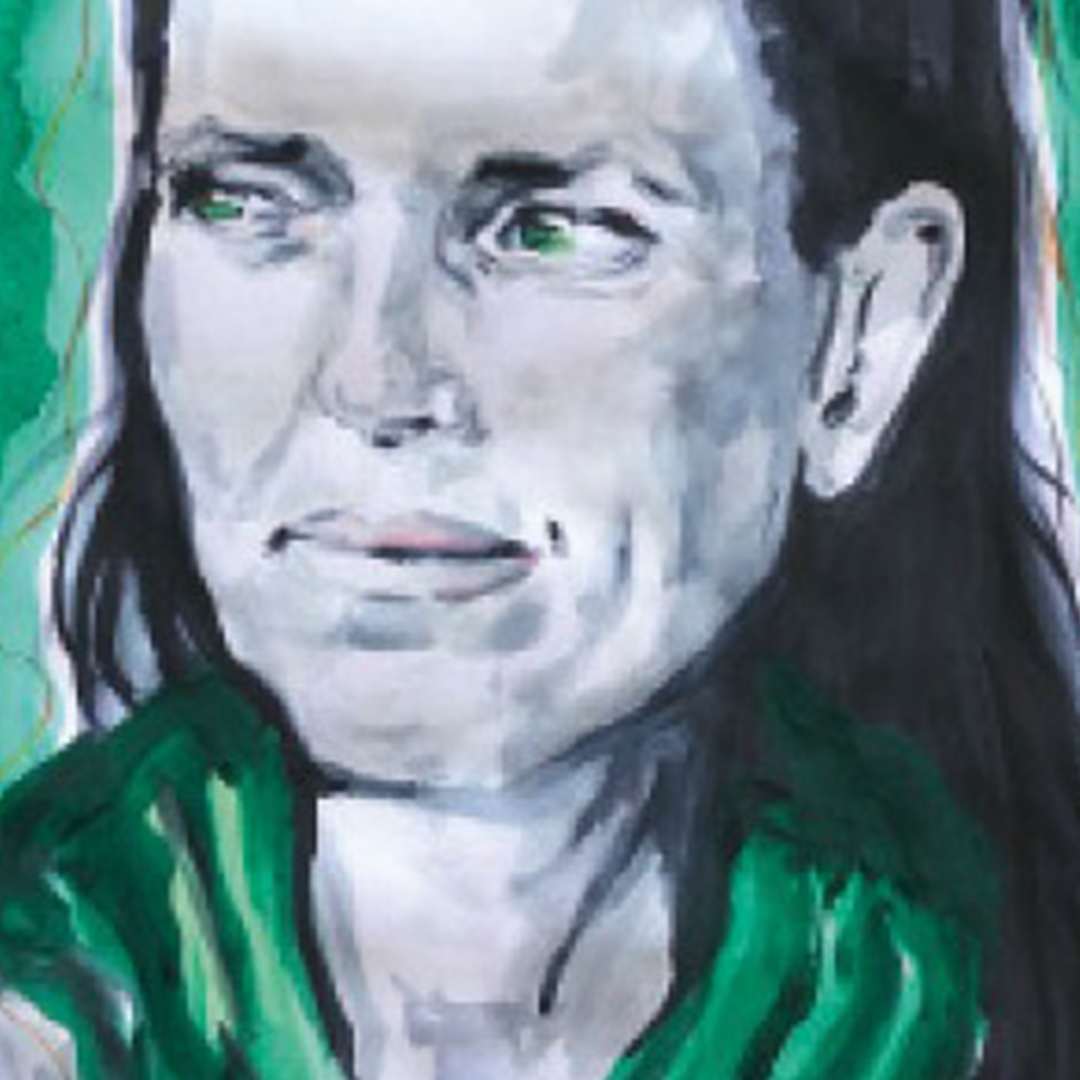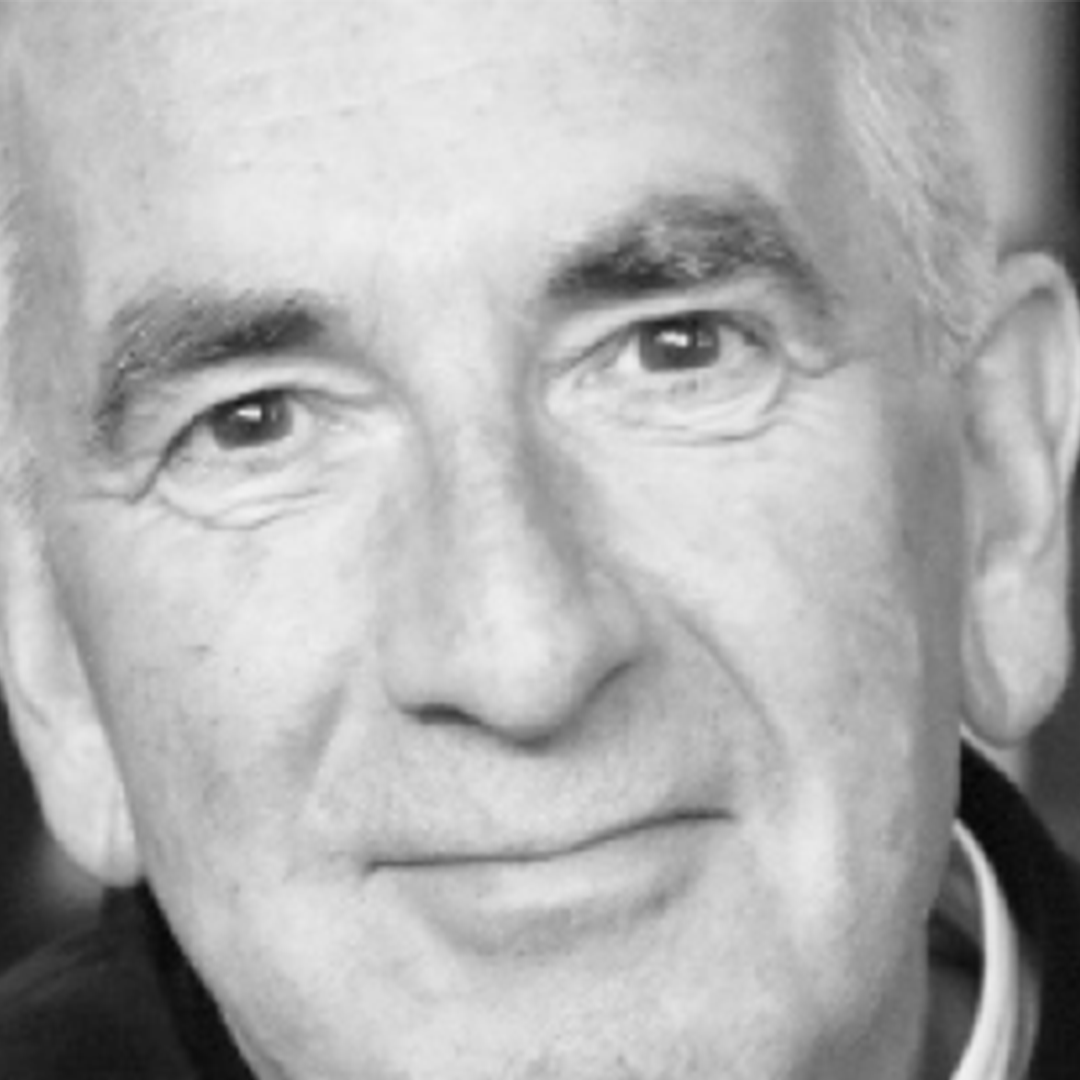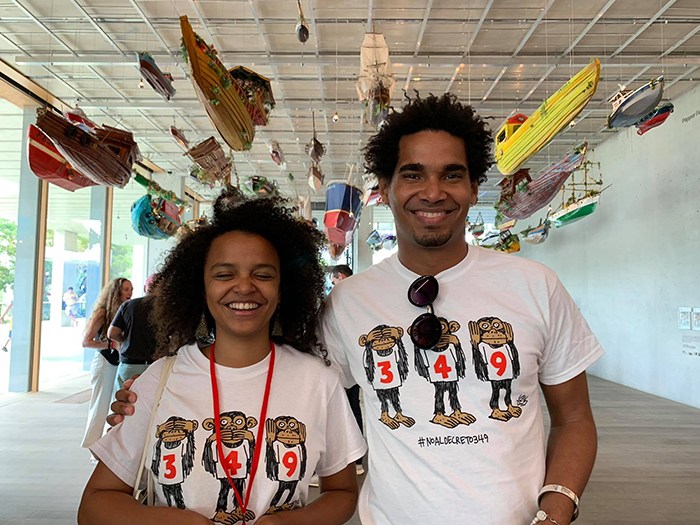Judged
FEATURING

Xinran
Writer

Claudia Piñeiro
Novelist

Robert Harris
Author
FEATURING

Writer

Novelist

Author
[vc_row][vc_column][vc_column_text]Social media platforms wield immense control over the information we see online. With rising pressure from governments; and increasing reliance on algorithms, social media platforms are in danger of silencing millions of activists and marginalised groups across the world with content takedowns and blocked accounts.
You are invited to hear the views from our panellists and take part in a discussion that will shape ARTICLE19 campaign.
Our vision for the campaign is to safeguard freedom of expression online. This cannot be achieved without better accountability and transparency. We will be calling on social media platforms to respect due process guarantees and create clear and transparent mechanisms to enforce such guarantees. Some questions we will be discussing include:
● How content takedown and account deactivation is affecting activism?
● What is the scale of the problem and its impact on free speech?
● What is the role of authorities for content takedown on social media platforms?
● What can be done to improve accountability and transparency online?
● What can the campaign do to amplify voices of those seeking change?[/vc_column_text][vc_custom_heading text=”Panelists” font_container=”tag:h3|text_align:left” use_theme_fonts=”yes”][vc_row_inner][vc_column_inner width=”1/2″][vc_single_image image=”107205″ img_size=”full”][vc_column_text]Thomas Hughes has been executive director of ARTICLE 19 since 2013. For the past two decades, Hughes has worked on human rights and media development issues, including as deputy director of International Media Support (IMS) between 2005 and 2010, as well as previously for the United Nations, European Commission and Organisation for Security and Cooperation in Europe (OSCE).[/vc_column_text][/vc_column_inner][vc_column_inner width=”1/2″][vc_single_image image=”107204″ img_size=”full”][vc_column_text]Jennifer Robinson is a barrister in London. Her practice focuses on international law, free speech and civil liberties. She advises media organisations, journalists and whistle-blowers on all aspects of media law. Robinson serves as a trustee for the Bureau for Investigative Journalism, and sits on the advisory board of the European Center for Constitutional and Human Rights and the Bonavero Human Rights Institute at the University of Oxford.[/vc_column_text][/vc_column_inner][/vc_row_inner][vc_row_inner][vc_column_inner width=”1/2″][vc_single_image image=”107206″ img_size=”full”][vc_column_text]Pavel Marozau is a civic and internet activist. He was under politically motivated persecution by the Belarusian authorities for producing satirical animated films casting president Lukashenko, being accused of slandering the Belarusian president. During the Geneva Summit, Marozau founded a network of activists from Iran, Burma, Venezuela, Cuba, Zimbabwe, and Egypt, as well as a founder of counter-propaganda web-television ARU TV.[/vc_column_text][/vc_column_inner][vc_column_inner width=”1/2″][vc_single_image image=”107207″ img_size=”full”][vc_column_text]Paulina Gutiérrez is an international human rights lawyer and internet freedom advocate in Latin America. She holds a degree in law and another one in international relations. During the last four years, Gutiérrez designed and developed the digital rights agenda for ARTICLE19 Mexico and Central America Regional Office. She’s also a member of INDELA’s Advisory Board and BENETECH’s Human Rights Program Advisory Board.[/vc_column_text][/vc_column_inner][/vc_row_inner][vc_column_text]
[/vc_column_text][vc_column_text]Presented in partnership with[/vc_column_text][vc_row_inner][vc_column_inner width=”1/4″][vc_single_image image=”60288″ img_size=”full”][/vc_column_inner][vc_column_inner width=”1/4″][/vc_column_inner][vc_column_inner width=”1/4″][/vc_column_inner][vc_column_inner width=”1/4″][/vc_column_inner][/vc_row_inner][/vc_column][/vc_row]
[vc_row][vc_column][vc_custom_heading text=”Episode one” use_theme_fonts=”yes”][vc_video link=”https://youtu.be/BG5N6U1Vbys”][vc_column_text]All around the world, the local news organisations that report on municipal and regional governments are in decline. What does this mean for democracy?
In the first installment of the Global Journalist series with the Index on Censorship magazine, a look at news deserts in the U.S., silent zones in Mexico and a poll measuring the confidence of British journalists in their ability to hold the powerful to account.
Joining the programme:
*Rachael Jolley, editor, Index on Censorship, London
*Jan Fox, contributing editor, Index on Censorship, Los Angeles
*Stephen Woodman, contributing editor, Index on Censorship, Guadalajara
For Global Journalist:
Assistant producers: Seth Bodine, Lara Cumming, Michelle Stoddart
Supervising producer: Edom Kassaye
Visual editor: Megan Smaltz[/vc_column_text][/vc_column][/vc_row][vc_row][vc_column][vc_custom_heading text=”Episode two” use_theme_fonts=”yes”][vc_video link=”https://youtu.be/D1t0-ogfjI8″][vc_column_text]Local and regional newspapers have dwindled all across the U.S. as print advertising revenues have shrunk. But the U.S. isn’t alone – there is a local news crisis happening all around the world.
In the second part of the Global Journalist series on the decline in local news with Index on Censorship magazine contributors, a look at the problem in India, Poland and Argentina. In these countries, traditional local news outlets face a host of problems: from populist governments to WhatsApp groups to advertising migrating online.
Joining the program:
*Rituparna Chatterjee, freelance reporter
*Adam Reichardt, editor-in-chief, New Eastern Europe
*Irene Caselli, contributing editor, Index on Censorship
For Global Journalist:
Host: Jason McLure
Producer: Edom Kassaye
Visual editor: Megan Smaltz
Studio production: Trevor Hook[/vc_column_text][/vc_column][/vc_row][vc_row][vc_column][vc_custom_heading text=”Episode three” use_theme_fonts=”yes”][vc_video link=”https://www.youtube.com/watch?v=-2VglgHjzF4″][vc_column_text]Local newspapers have been eviscerated over the last 15 years as social media and the internet have destroyed their business model. Yet all is not doom and gloom.
In the third part of our series on the global crisis in local news with the Index on Censorship, a look at new business models to support local journalism as well as how robot reporters might yet save their human counterparts. We’ll also get a look at efforts to keep “deep fake” videos from going viral on the internet and further distorting our public conversation.
Joining the program:
*Raymond Joseph, journalist
*Sally Gimson, deputy editor, Index on Censorship
*Mark Frary, journalist and author
Producer: Edom Kassaye
Visual editor: Megan Smaltz[/vc_column_text][/vc_column][/vc_row][vc_row][vc_column width=”1/2″][vc_video link=”https://youtu.be/6BIZ7b0m-08″][/vc_column][vc_column width=”1/2″][vc_column_text]Index on Censorship partner Global Journalist is a website that features global press freedom and international news stories as well as a weekly radio program that airs on KBIA, mid-Missouri’s NPR affiliate, and partner stations in six other states. The website and radio show are produced jointly by professional staff and student journalists at the University of Missouri’s School of Journalism, the oldest school of journalism in the United States. [/vc_column_text][/vc_column][/vc_row][vc_row][vc_column width=”1/3″][vc_custom_heading text=”Is this all the local news?” font_container=”tag:h3|text_align:left” link=”url:https%3A%2F%2Fwww.indexoncensorship.org%2F2019%2F03%2Fmagazine-is-this-all-the-local-news%2F|||”][vc_column_text]The spring 2019 issue of Index on Censorship magazine asks Is this all the local news? What happens if local journalism no longer holds power to account?
With: Libby Purves, Julie Posetti and Mark Frary[/vc_column_text][/vc_column][vc_column width=”1/3″][vc_row_inner][vc_column_inner][vc_single_image image=”105481″ img_size=”full” onclick=”custom_link” link=”https://www.indexoncensorship.org/2019/03/magazine-is-this-all-the-local-news/”][/vc_column_inner][/vc_row_inner][/vc_column][vc_column width=”1/3″][vc_custom_heading text=”Subscribe” font_container=”tag:h3|text_align:left”][vc_row_inner][vc_column_inner][vc_column_text]In print, online. In your mailbox, on your iPad.
Subscription options from £18 or just £1.49 in the App Store for a digital issue.
Every subscriber helps support Index on Censorship’s projects around the world.
![]() SUBSCRIBE NOW[/vc_column_text][/vc_column_inner][/vc_row_inner][/vc_column][/vc_row]
SUBSCRIBE NOW[/vc_column_text][/vc_column_inner][/vc_row_inner][/vc_column][/vc_row]
[vc_row][vc_column][vc_column_text]

Cuban artists Luis Manuel Otero Alcantara and Yanelys Nuñez Leyva, members of the Index-award winning Museum of Dissidence
Yanelys Nuñez Leyva and Luis Manuel Otero Alcántara, members of the 2018 Index on Censorship Freedom of Expression Award-winning Cuban artist collective the Museum of Dissidence, have been putting themselves on the line in the fight for free expression in Cuba, from being harassed by the authorities to their numerous arrests for protesting Decree 349, a vague law intended to severely limit artistic freedom in the country.
Cubans voted overwhelmingly for a new constitution that upholds the one-party state while claiming to bring about some economic and social reform, but the Museum of Dissidence took a more critical stance to the referendum. Index caught up with Nuñez Leyva and Otero Alcántara to talk about the current situation in Cuba and what they’ve been up to recently.
Index on Censorship: Why did the Museum of Dissidence and its members come out so strongly against the new Cuban constitution?
Luis Manuel Otero Alcántara: The constitution imposed by the regime is an aberration that goes against the freedom of the Cuban and does not represent us as Cubans, intellectuals or humans. The Magna Carta should not be written to control and cut my freedom, it must represent a balance of citizen welfare especially for the immediate future.
Index: Decree 349 will see all artists prohibited from operating in public places without prior approval from the Ministry of Culture. How does this impact the work you do?
Otero Alcántara: The campaign against the 349 was a great victory, the regime had to admit that it was wrong. The country’s leaders had to face and make political moves to placate countless artists, intellectuals and ordinary people concerned about Cuban culture and who joined in the demands to the regime.
Given this, the 349 helped to make visible all the repression and censorship that the government has been carrying out against culture and art for 60 years. As a legacy, we left the movement of San Isidro, a group of artists and intellectuals that has the mission to overcome all the inhumane repression of the regime, to be vigilant and proactive over freedom of Cuban art and culture. The most important project of the post-campaign movement 349 will be the Observatory of Cultural Rights in Cuba.
Index: What sort of training did Yanelys Nuñez Leyva receive while in Prague as part of the Freedom of Expression Awards Fellowship and how will it be useful in Museum of Dissidence?
Yanelys Nuñez Leyva: The training covered tools I can use for work, such as video editing. It also offered insight into new topics such as feminism, a social movement that is not yet as strong in Cuba but should be.
Index: What did Museum of Dissidence do while in Mexico at the Oslo Freedom Forum and how will this help further your cause?
Otero Alcántara: The MDC joined several independent institutions in Cuba such as the Matraca Project, or the Endless Poetry Festival, so that each one, from his or her experience, would demand freedom of expression for all Cubans in a forum.
In all the presentations, we emphasised the unjust detention of two Cuban musicians, Maikel Castillo and Pupito, who are imprisoned for opposing Decree 349.
Index: How did attending Libertycon in Washington DC reinforce or re-inspire your fight for artistic freedom in Cuba?
Luis Manuel: All these events we have been a part of, such as Forum 2000, or the Index award, or the residency in Metal, have helped to create a platform where contemporary art ceases to be an ornament in a house but an exercise of pressure and a true link of change within Cuba.
Index: Although nearly 87% of voters in the referendum voted yes to the new constitution, there was an unprecedented display of ballot-box dissent, with more than 700,000 people voting no. What do you think this is a result of and do you think this signifies changing times for the Cuban population and government?
Otero Alcántara: In a totalitarian regime like the one in Cuba, where it controls all the information, international observers and legal transparency systems are not allowed, those percentages are strategies of the regime to simulate a less critical state than the one that exists. Those numbers are a joke but the interesting thing is to see how the political opposition handles that ‘no.’ Making ordinary people see that they are not alone, that other thousands of people feel and voted just like them, is something that contributes to encouraging dissent.
Index: What makes you remain so steadfast in your fight for artistic expression in Cuba when the oppression of artists continues, including the recent arrest of members of the Museum of Dissidence?
Otero Alcántara: Love binds me, wherever I want to escape, from the shelter of the pillow in the darkness of my room; going through a luxurious hotel in Miami or in a bucolic countryside in the UK, the suffering of Cuba and the human is shaking my head and the only way I can free myself from that ghost is to fight and know that I am doing something.
Last December when the government promised to implement the 349, I felt that my spirit was imprisoned in the body of a regime, so I took responsibility for the life of my body through a hunger strike to the regime. It would be they who would decide if I was still breathing my body or not but my spirit would be free.
Luckily, we got a reaction from the government. They appeared on Cuban television, and that was because of the union that was achieved among all the artists.
Index: What are the main goals that you’ll be working toward throughout 2019?
Otero Alcántara: 2019 is the year of the official state-sponsored Havana biennial and a year of preparation for the #00 Biennial of 2020, which are two interesting scenarios for the future of Cuban culture right now. The other thing is to continue working for overall freedom in Cuba.
Index: How has the Museum of Dissidence benefitted from its time on the Index on Censorship Freedom of Expression Awards Fellowship?
Otero Alcántaral: Being Index Fellows was one of the best things that has happened to the museum in its history as a work of art and an institution. It was a prize that gave visibility to the Musem of Dissidence and gave us thousands of contacts. It gave us protection against the repression of the regime and its discredit toward political art in Cuba. But above all we met people like Perla Hinojosa and the rest of the Index team, also Mohamed Sameh from ECRF, Julie Tribault, the promoters of the Metal artistic residency and another large number of projects and platforms that, with their example, have encouraged us to continue the struggle, especially in the moments of greatest loneliness.[/vc_column_text][/vc_column][/vc_row][vc_row][vc_column][vc_basic_grid post_type=”post” max_items=”4″ element_width=”6″ grid_id=”vc_gid:1583501159250-00b68107-bcde-1″ taxonomies=”7874″][/vc_column][/vc_row]